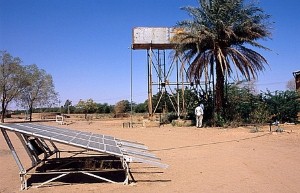LED lighting could offer a flexible solution for countries without electricity
We take free-flowing electricity supplies for granted in the UK, but in many parts of the world, such ready access to power is not a day-to-day reality.
However, one industry expert has said that the various benefits of LED lighting - such as the low heat output, comparatively small voltage needed to run a bulb and the long lifespan of each individual unit - makes it the perfect solution for developing nations.
"It's now become very viable to do solar," said John Westermeyer, marketing manager for Philips Lighting Africa, speaking to News24. "By combining LED with the solar, it draws far less energy than conventional lighting, and suddenly the lifetime of the product is enhanced."
Philips was formerly one of the electrical goods powerhouses, but has since shifted its focus to affordable and eco-friendly lighting, becoming the largest lighting manufacturer in the world as of 2012. It's hoped that with the backing of such a huge firm, affordable and sustainable lighting could become a reality for emerging nations who operate without a grid.
The company recently announced an affordable light bulb with a 20-year lifespan, offering customer rebates on the 10W bulb in an effort to increase uptake.
"It's a huge area of focus for us," Westermeyer continued. "If you look at Africa as a whole, over 800 million people in Africa don't have access to electricity."
And the expert went on to explain that the particular advantages of LED light bulbs could prove especially beneficial in the continent.
"The main advantage of LED is its lifetime: it lasts for thousands of hours compared to conventional lighting," he said. "Secondly, you can achieve energy savings - anything from 50 per cent to 90 per cent, depending on what you replace and its application."
And it's those same benefits that can make an impact on residential energy bills in this country.

